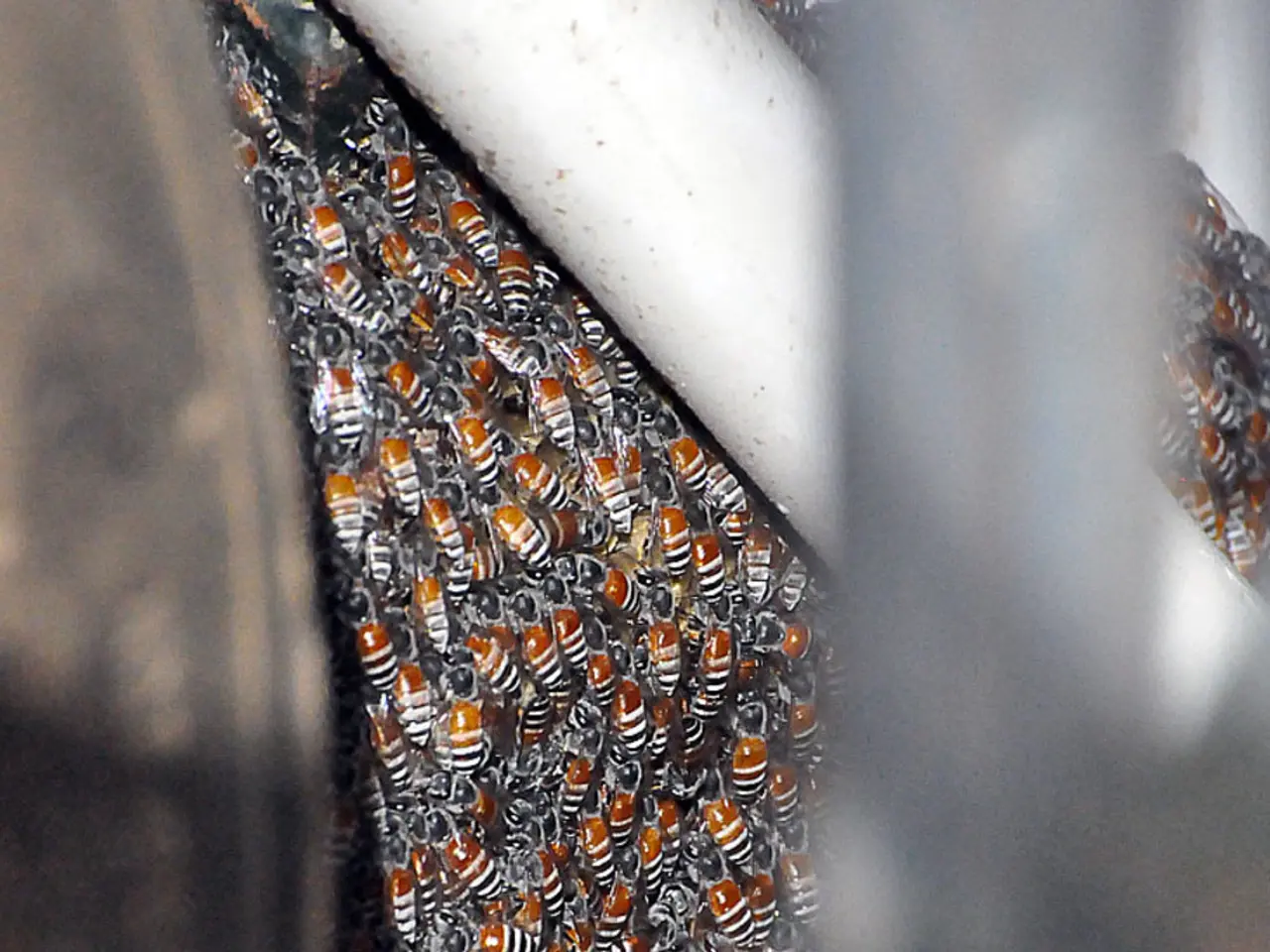Asthma Treatment through Honey: Understanding Its Mechanism
### Honey and Asthma: A Closer Look
Recent studies have suggested that honey may hold some potential benefits for individuals suffering from respiratory symptoms, including those related to asthma. However, it is essential to clarify that honey's effectiveness in managing asthma symptoms specifically remains unclear and is not strongly supported by large clinical studies.
One of the ways honey may help is by **reducing coughing and throat irritation**, which can be symptoms associated with asthma, particularly during respiratory infections or upper respiratory tract conditions. Some clinical trials have found honey effective in shortening the duration of cough and soothing airway irritation in children with upper respiratory infections [1][4].
Honey is sometimes recommended as a home remedy for asthma symptoms, often combined with other natural ingredients like cinnamon or kalonji/black seed oil. The idea behind this is that honey's anti-inflammatory and phlegm-relieving properties can ease breathing difficulties [2]. However, these recommendations are largely anecdotal or based on traditional use rather than conclusive clinical evidence.
Despite these potential benefits, there is **no strong, large-scale clinical evidence** to confirm honey as an effective treatment for asthma itself, which is a chronic inflammatory airway disease. Asthma requires appropriate medical treatments such as inhaled corticosteroids and bronchodilators prescribed by healthcare professionals.
The role of honey in managing allergic conditions, including asthma triggered by allergies, is inconclusive. Some suggest that local honey might help with allergic symptoms through desensitization mechanisms, but pollen in honey is usually different from the allergens causing most respiratory allergies, so honey is unlikely to significantly reduce asthma caused by allergies [1][3].
It is important to note that **honey should never be given to infants under 1 year old** due to the risk of infant botulism [3]. In rare cases, some people may have allergic reactions, including severe reactions such as anaphylaxis, especially if they have pollen allergies or bee product sensitivities [3]. Those with severe or poorly controlled asthma should be cautious relying on honey and seek medical advice.
In conclusion, while honey may provide symptomatic relief for cough and throat irritation and has some immune-supporting properties, it should not be considered an effective or primary treatment for asthma in children or adults. Asthma management should always be guided by a healthcare provider.
| Aspect | Details | |-------------------------|---------------------------------------------------------------------------------------| | Effectiveness | May soothe cough/throat irritation, limited evidence specifically for asthma control | | Suggested use | Often combined with warm water, cinnamon, or black seed oil as home remedies | | Clinical evidence | Insufficient large-scale trials for asthma; some positive results for cough relief | | Risks | Not for infants <1 year; potential allergic reactions including anaphylaxis | | Medical advice | Honey is not a substitute for prescribed asthma medication and care |
- Treatmentseekers inquisitive about the impact of honey on chronic diseases might find some potential benefits for respiratory symptoms, like asthma.
- Some naive perspectives consider honey as an established home remedy for managing asthma and related symptoms, but the science supporting these claims remains unclear.
- Despite theorized desensitization mechanisms, the role of honey in treating allergies that trigger asthma is inconclusive.
- The workplace-wellness community suggests honey as a natural approach to sleep enhancement, possibly reducing the severity of sleep issues linked to respiratory conditions.
- Nutritionists and fitness enthusiasts often recommend honey for its immune-supporting properties, which might benefit mental health and skin care by maintaining optimum wellness.
- Honey could aid in the recovery of those suffering from common allergies or upper respiratory tract conditions, such as colds and flu, by lessening coughing and throat discomfort.
- Therapies and treatments for chronic diseases like asthma and other bronchial infections might find value in the anti-inflammatory properties of honey, but these matters need further investigation.
- Medical professionals generally advise against using honey as a primary treatment for asthma or any chronic diseases, reinforcing the importance of prescribed medication and regular check-ups.
- CBD-enthusiasts experimenting with natural alternatives for health and wellness may discover honey's potential role in supporting overall fitness and exercise routines, aiding in recovery from strenuous activities.
- It is imperative for all, especially treatmentseekers with chronic diseases or asthma, to recognize the limited and anecdotal evidence surrounding honey's potential benefits and consider informed medical advice before making any lifestyle adjustments.






